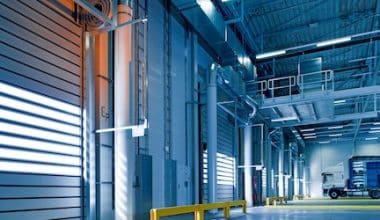We realize you’ve put in a lot of effort to amass your most prized belongings. As a result, Risk Insurance Policy covers the loss or damage of precious and movable items such as jewelry, paintings, portable computers, and cell phones, among other things. If you lose your belongings in a fire, burglary, housebreaking, theft, or any other disaster or unanticipated scenario, this protection will bring some comfort. This is why this post is dedicated to educating you on business property insurance, cost and so much more.
Business Property Insurance
Business/commercial property insurance safeguards the assets of a company against perils such as fire, theft, and natural disaster. Any business property is covered by business property insurance. Commercial property insurance is carried by a wide range of businesses, including manufacturers, retailers, service-oriented businesses, and non-profit organizations. It’s usually with other types of insurance, like commercial general liability insurance.
Overview
Business property insurance or commercial property insurance can be a major expense for businesses that use equipment worth millions or billions of dollars, such as railroads and manufacturers. This insurance essentially provides the same kind of protection as property insurance for consumers. However, businesses can usually deduct the cost of commercial property insurance premiums as expenses. Commercial property insurance generally does not cover losses arising from tenants using the building.
When determining how much a company should pay for commercial property insurance, the value of a business’s assets, including the building, is the primary factor. Before meeting with an agent to discuss coverage, a company should take an inventory of their physical assets located at their property. This information will help determine what exactly would be the replacement value and the level of coverage the business should get.
With an increase in the number of natural disasters, weather conditions in the area where the building is located have also become an important factor in determining the cost of commercial property insurance. Commercial insurance rates are generally higher for properties located in the vicinity or inside geographies with a significant risk of weather-related catastrophes. For example, rates are higher for properties located near regions prone to wildfires in California.
Factors Considered in a Business Property Insurance
#1. Location
Buildings in cities or towns with good fire protection cost less to insure than buildings outside of cities or in areas with poor fire protection.
#2. Construction
Premiums for structures constructed of potentially combustible materials will be higher, while premiums for structures made of fire-resistant materials may be lower. It’s a good idea to talk to an agent or insurance company before renovating because additions to an existing structure may impact the fire rating. A fire rating can also be affected by internal structural factors. Using wood partitions, floors, and stairwells in a structure that is otherwise fire-resistant will very certainly negate any rate savings. Interior walls, floors, and doors that are fire-resistant can assist maintain a good fire rating.
#3. Occupancy
The use of a structure has an impact on its fire rating. A restaurant or car repair company will most likely score lower than an office building. One dangerous resident in a structure with several tenants will have a detrimental impact on the entire building’s fire rating. Premiums will be higher if a firm is located in a building with a more dangerous tenant.
#4. Fire and theft protection
What is the distance between the nearest fire hydrant and the fire station? Is there a fire alarm and sprinkler system installed in the business? What about putting in a security system?
Does My Business Need Commercial Property Insurance?
It is recommended that commercial property insurance be obtained by any company that owns or rents office space. It’s possible that the landlord will demand it. You should also protect important assets with commercial property insurance, such as expensive pieces of machinery and other apparatus.
What Does a Business Property Insurance Policy Cover?
Your company’s tangible assets can be safeguarded against a wide variety of calamities with the help of business property insurance, including blazes, explosions, storms, burglaries, and vandalism. Additional coverage is frequently also offered for natural disasters like earthquakes and floods, as well as for the breakdown of your business’s equipment and other direct sources of loss.
Does Business Property Insurance Cover Theft?
Theft protection for your business property is something that may be included in your business property insurance policy.
If someone steals property from within or within 100 feet of your place of business, having coverage for your goods, gear, and inventory, which is also known as company personal property, might be helpful.
If you frequently work in different locations, you should also think about purchasing insurance that covers your tools and equipment. It is useful for preventing damage to equipment no matter where you are. If someone were to take your power equipment while they were at a job site, for instance, your insurance might assist pay for replacement tools.
Small business property insurance
From fire and flooding to embezzlement, insurers are in the unique position of having an encyclopedic knowledge of the many different ways your business property can be damaged or destroyed. Electrical surges, the accidental activation of a chemical sprinkler system, and a computer virus are examples of an event that can cause property damage.
Because insurers are so knowledgeable about what can go wrong. They can provide your company with the insurance coverage that your industry requires. Losses of property can easily put a company out of business if it isn’t properly insured.
Property insurance for small businesses is designed to provide critical financial assistance in the event of a loss. Allowing the company to continue operating with minimal disruption.
Property insurance, on the other hand, is rarely sufficient. It should only be one component of comprehensive risk management and disaster recovery strategy. Insurance claims are lower on average for businesses that devote resources to risk reduction and risk control. Companies with a good claim history typically have more insurers competing for their business. Allowing them to find coverage more quickly and often at a lower cost than companies with more losses.
Many of the more common types of property coverage are covered here in a broad sense. You can learn everything you need to know about your policy by reading it and talking to your agent or insurance company about your coverage needs.
Read on to see who has the best small business insurance that meets your needs
#1. State Farm
Because it offers numerous types of coverage through a nationwide network of agents. We chose State Farm as the best overall small business insurance carrier. Furthermore, because State Farm representatives are also business owners, they are familiar with the needs of other small business owners.
#2. Hiscox
Hiscox wins the top spot for independent contractors because they have products designed and priced specifically for independent contractors and freelancers. Business general liability, professional liability, business owners’ policies (BOPs), workers’ compensation, cyber liability, commercial auto, and employment practices liability insurance are among the products offered by Hiscox (EPLI). The firm also writes all of GEICO’s commercial insurance policies.
#3. Nationwide
We chose Nationwide as our best general liability provider because it is a business insurance carrier that focuses on the basics. Clear insurance solutions are appropriate for companies with high-risk general liability requirements. AM Best also gave Nationwide an A+ Superior rating for financial stability.
#4. The Hartford
Because of the unique benefits, it provides employers, like pay-as-you-go programs, we chose The Hartford as our top workers’ compensation supplier. Because expenses are based on real wages rather than estimates, these plans dramatically reduce the chances of overpaying or underpaying premiums.
#5. Travelers
Travelers were our best commercial property insurer because it has vast expertise in the industry. Having been the top commercial property insurance company in the United States by premiums for numerous years and narrowly missing out on a first place in 2023.
#6. Liberty Mutual
We chose Liberty Mutual as the best insurer for BOPs because the company has a fast and easy process with a streamlined business owner’s policy available for many different industries that combine coverage in one cost-effective policy.
Liberty Mutual was the finest provider of business owners’ plans (BOPs) which combines numerous types of coverage into a single policy to protect against liability, property loss, and income loss. Regardless of industry, Liberty Mutual is in a unique position to assist a large number of business owners at a low cost.
#7. Progressive Commercial
We chose Progressive as our best insurer for commercial auto insurance because it is the largest specialist in this space and knows how to handle business auto claims better than anyone.
Progressive is the largest commercial auto insurance in the United States, having been formed in 1937. While commercial vehicle insurance is one of Progressive’s primary focus areas, the company also provides general liability, workers’ compensation, BOPs, professional liability, and cyber insurance. Progressive offers insurance for 61 different businesses and occupations, including gyms, yoga instructors, auto mechanics, painters, and beauty salons, among others.
Business property insurance cost
The size of your building, the value of your equipment, and other factors help determine the cost of property insurance (also called hazard insurance).
- The median cost of commercial property insurance is $63 per month or $755 per year with a limit of $60,000 and a median deductible of $1,000. The median offers a more accurate estimate of what your business is likely to pay than the average cost of property insurance because it excludes outlier high and low premiums.
- Many Insureon small business customers (16%) pay less than $500 per year and 42% pay between $500 and $1,000 annually for property insurance. However, most customers opt for a business owner’s policy, which combines commercial property insurance with general liability insurance at a discount.
Factors that impact property insurance costs
#1. Geography
This can assist your provider in determining which environmental risks, such as flooding and tornadoes, your business may face. Premiums are affected by the value of your land and local laws.
#2. Size of business premises
A large office or factory building will likely cost more to insure than a single rented room.
#3. Safety and Security
Is your place of business in a high-crime area? Do you work with hazardous materials or engage in dangerous activities such as mining? Do you have any security measures in place? All of these factors can have an impact on insurance premiums.
#4. Age of building
Because old buildings are more vulnerable to certain sorts of damage, they may be more expensive to insure. A fire caused by old electrical wiring, for example, could result in pricey repairs.
#5. Fire protection
Property near a fire station and fire hydrants may be less expensive to insure. Sprinkler systems and fire alarms can also assist save money on insurance.
#6. Type of equipment
Heavy industrial equipment will cost more to insure than an at-home business’s sewing machine.
#7. Age of equipment
If your equipment is difficult to fix due to limited components or is more prone to break down due to heavy use, you may have to pay a higher premium. Alternatively, it may be less expensive to fix outdated equipment rather than purchase cutting-edge technology.
#8. Property valuation method
Actual cash value coverage is more expensive than replacement value coverage. The former compensates for the purchase of a brand-new item, while the latter compensates for the depreciated worth of the same item.
#9. Types of hazards covered
A policy that covers all risks is more expensive than one that only covers identified perils. Except for those losses specifically excluded in the policy, open-peril coverage protects against all losses. Only damages stated in the policy are covered under named hazards coverage.
What is a Common Policy Condition on a Commercial Property Policy?
The Common Policy Conditions refer to the section of the insurance policy that typically addresses issues with cancellation, changes in coverage, audits, inspections, premiums, and the assignment of the policy. The portfolio of commercial lines policy forms was developed and distributed by Insurance Services Office, Inc.
What is General Liability Property Insurance?
You and your organization are often covered under general liability insurance coverage for claims involving bodily injuries and property damage that are the direct result of your business’s operations, products, or services. You may also be protected if you are found responsible for causing damage to the property owned by your landlord.
What Does a General Commercial Liability Policy Cover?
Your company is safeguarded against financial loss by a Commercial General Liability (CGL) policy in the event that you are found legally accountable for property damage, bodily injury, or injury to a third party’s reputation that was brought on by your workers, services, or business activities. It applies to cases of negligence outside of the professional sphere.
What is the Difference Between General Liability and Commercial Insurance?
General liability insurance, in contrast to commercial property coverage, only protects you financially if your company is responsible for injuries or property damage to a third party. It does not cover injuries sustained by your employees or damages to the property owned by your company.
Is Liability Insurance Same as Property Insurance?
Your home’s structure (dwelling coverage), as well as your personal goods, are both safeguarded by property insurance (personal property coverage). And personal liability coverage safeguards you in the event that you are found legally accountable for causing damage to someone else’s property or accidentally injuring another person, regardless of whether you are at home or away from it.
FAQ
What is business property protection?
This type of business insurance, also known as commercial property insurance, helps protect your business property, whether you own or rent it. If they’re stolen, damaged, or destroyed, business property insurance can help cover the costs to repair or replace your: Personal property located at your business.
What does general liability cover?
General liability insurance policies typically cover you and your company for claims involving bodily injuries and property damage resulting from your products, services or operations. It may also cover you if you are held liable for damages to your landlord’s property.
What is business income loss insurance?
Business income coverage (BIC) form is a type of property insurance policy, which covers a company’s loss of income due to a slowdown or temporary suspension of normal operations, which stems from damage to its physical property.






